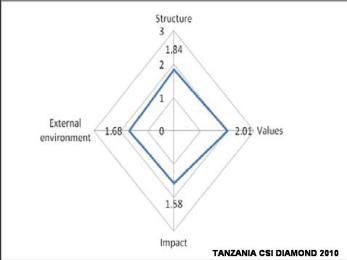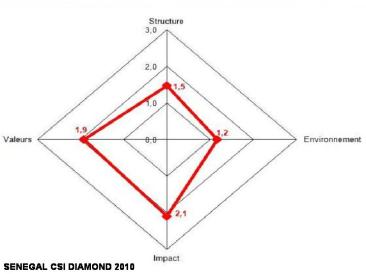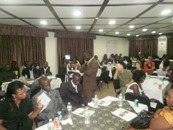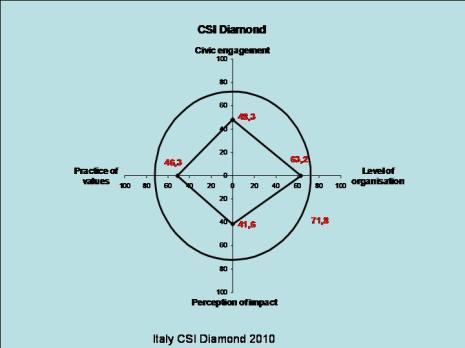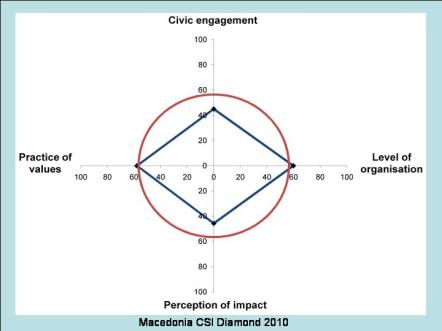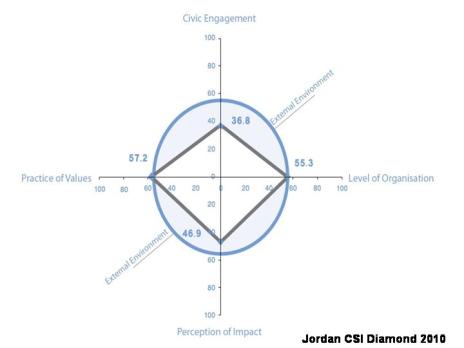CIVICUS is pleased to announce the publication of the Civil Society Index (CSI) Analytical Country Report from Guinea. The project was implanted in Guinea by the National Council for Civil Society Organisations in Guinea (CNOSGC), in partnership with the United Nations Development Programme (UNDP) and CIVICUS.
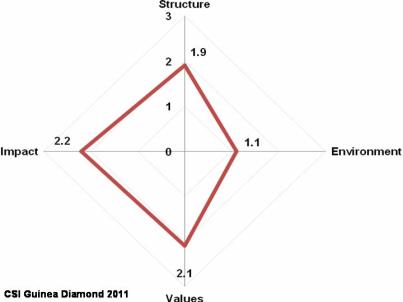 The CSI scores suggest amongst other things that overall, Guinean citizens have a fairly weak level of engagement in civil society actions, and that levels of citizen participation in civil society and the associational life of Guinea remain relatively low. This is due, the report suggests, either to a lack of knowledge about the notion of civil society and its role, or a lack of technical and financial resources to enable citizens to actively meet societal needs. Meanwhile the external environment dimension, assessing Guinea’s political and legal context, had the lowest score. This suggests that the Guinean state, relying on its political, constitutional and economic power, does not create a favorable environment for the development of civil society. It is important to note that during the CSI research process, the change of regime that occurred in 2009 will likely further affect the extent to which the Guinean environment enables civil society.
The CSI scores suggest amongst other things that overall, Guinean citizens have a fairly weak level of engagement in civil society actions, and that levels of citizen participation in civil society and the associational life of Guinea remain relatively low. This is due, the report suggests, either to a lack of knowledge about the notion of civil society and its role, or a lack of technical and financial resources to enable citizens to actively meet societal needs. Meanwhile the external environment dimension, assessing Guinea’s political and legal context, had the lowest score. This suggests that the Guinean state, relying on its political, constitutional and economic power, does not create a favorable environment for the development of civil society. It is important to note that during the CSI research process, the change of regime that occurred in 2009 will likely further affect the extent to which the Guinean environment enables civil society.
Some of the strengths of Guinean civil society highlighted in the report include the existence and diversity of CSOs, commitment by CSOs to their mandate to serve the vulnerable and poor, close proximity of CSOs to grassroots communities, and an effort to mainstream gender in programmes and policies. Weaknesses of civil society in Guinea include a poor understanding of the concept of civil society, political infiltration of some CSOs, low financial and human resource capacity, and an absence of self regulatory and transparency mechanisms.
Suggested recommendations endorsed by a national workshop held in Conakry on 9 April 2011 include developing a new national civil society communication and information network; instigating and adopting a new code of ethics; initiating a new advocacy strategy for the greater involvement of civil society in the development, implementation, funding, monitoring and evaluation of government policies and of decentralisation. They also suggested that the CSI study should be repeated periodically in order to track and assess trends and the direction of change in Guinean civil society.
To read the full report click here
